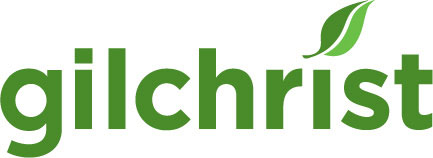Gilchrist Integrative and Palliative Medicine: Using Our Toolbox to Enhance Well-being
Gilchrist’s Integrative and Palliative Medicine team focuses on the mind-body care of patients with serious illness and their families, using all the “tools” that work. It won’t surprise you that we use medications to help our patients manage symptoms. But you might not expect that we also use acupuncture, therapeutic art, music therapy, manual medicine, mind-body techniques and more.

Caring for the Mind and Body Together
We firmly believe that the mind and body are connected. If your mind is anxious, your body responds. And if your body doesn’t feel well, your mood and emotions may suffer. Therefore, we believe that truly caring for the whole person involves caring for the mind and body together.
Medications and medical procedures are powerful, but they aren’t perfect. Sometimes important medications can cause unpleasant side effects and procedures can cause pain. Even pain and anxiety medications, which are used to reduce suffering, can cause drowsiness, confusion and increase the risk of falling.
Acupuncture has been shown in clinical studies to improve various kinds of pain. It involves the use of very thin needles, placed by a licensed acupuncturist, in specific parts of the body called acupoints. This simple procedure has also been shown to improve nausea, vomiting, anxiety and depression. It is safe, has very few side effects and can help improve both physical and emotional suffering. Manual medicine techniques such as massage may also help relieve pain, enhance relaxation and facilitate sleep.
Mind-Body Techniques
Some of our suffering comes from within. Our mind can be a powerful tool that may help us feel better but can also cause us to feel worse. Worrying about the outcome of a procedure scheduled for next week or repeatedly wondering if the chemotherapy you are taking will work can increase the physiologic stress response and reduce wellbeing. A chronically elevated stress response can increase pain, anxiety and nausea, and make it hard to sleep.
Mind-body techniques such as guided imagery, relaxation breathing and progressive muscle relaxation can help to calm a stressed-out nervous system. Mindfulness techniques can train the mind to focus on the current moment rather than wandering into the “what ifs” of the future. Music therapy and therapeutic art can help distract from anxious thoughts or unpleasant symptoms and may spark new insights or feelings of joy.
In Integrative and Palliative Medicine, our goal is to reduce our patients’ suffering and enhance their wellbeing. We are experienced with medications and use them often, but we also understand their limitations. So we have filled our toolbox with a diverse assortment of evidence-supported tools designed to facilitate wellness. And here is a secret: we not only recommend them to our patients—we use them ourselves!
You can try Gilchrist’s Integrative Medicine Guided Meditation practices at home to help you through challenges or difficulty using your own inner resources. This six-session guided meditation series was developed by Gilchrist’s mind-body specialist.
To learn more about Gilchrist’s Integrative and Palliative Medicine services, visit gilchristcares.org/integrativemedicine. To support our work, visit gilchristcares.org/give.


